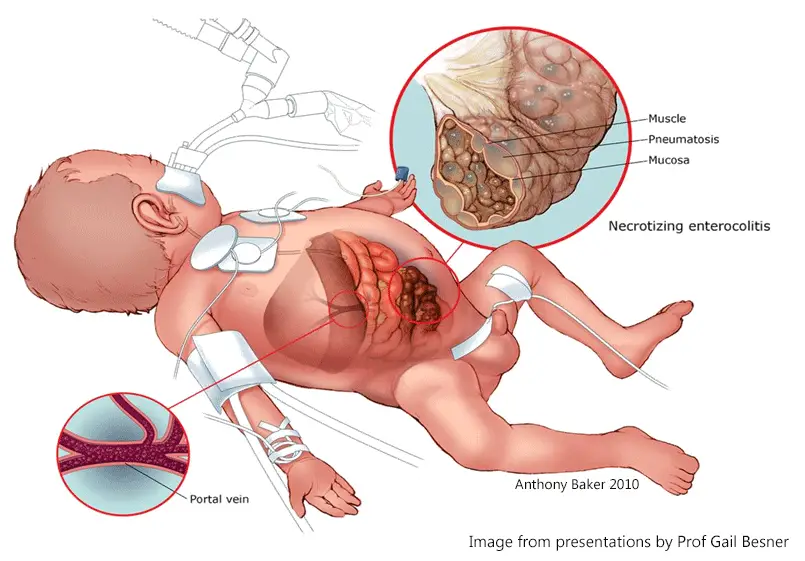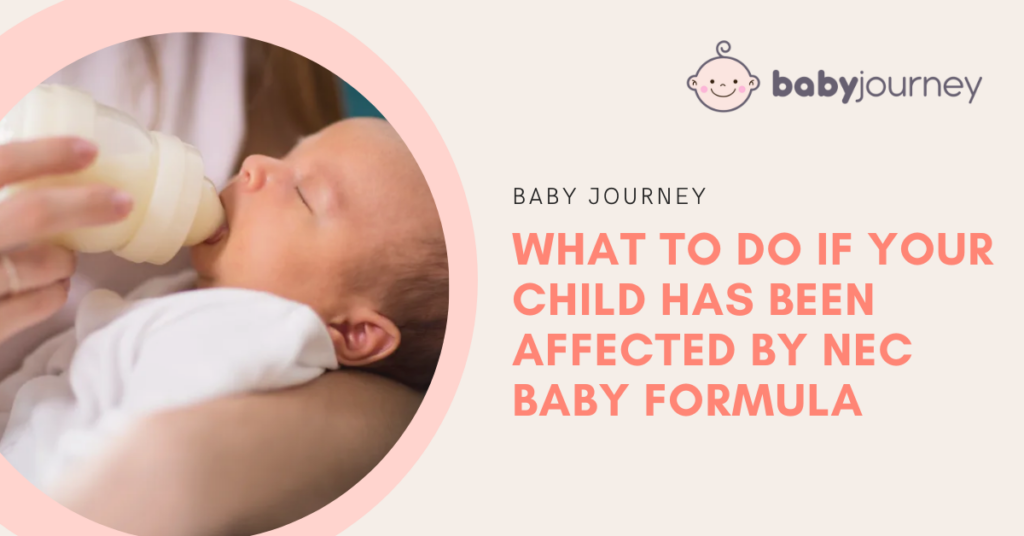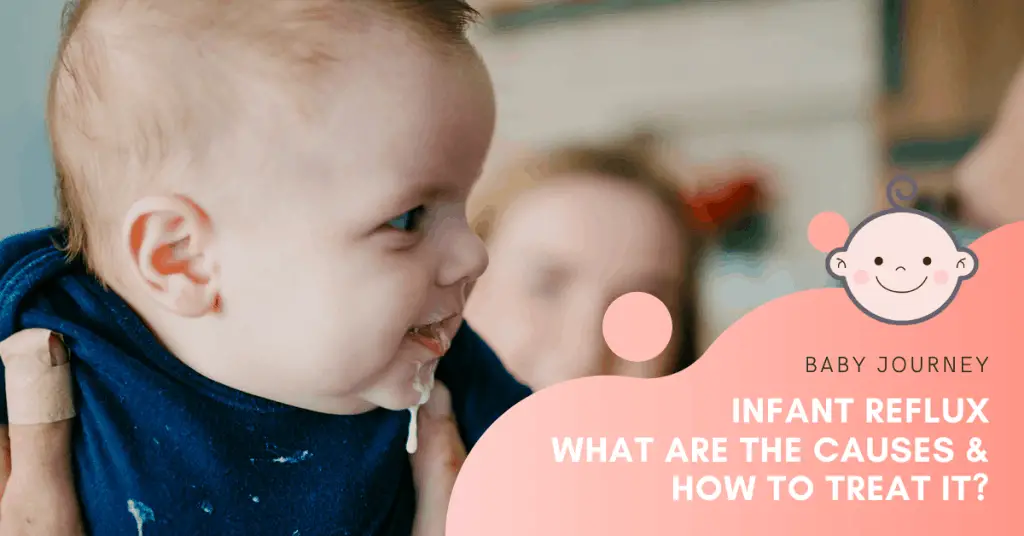In this article, we will discuss the steps you should take if your child has been affected by NEC (Necrotizing Enterocolitis) due to baby formula. NEC is a serious gastrointestinal condition that can affect premature infants and newborns, and it’s essential to know how to respond if your child is diagnosed with it.
We’ll provide you with a comprehensive guide on what to do to ensure the best care and support for your little one affected by NEC baby formula.
Also read: Formula That Tastes Like Breast Milk
Understanding NEC and Its Causes

What is NEC?
Necrotizing Enterocolitis is a medical condition that primarily affects the intestine in premature or low birth weight infants. It occurs when the tissue in the intestine becomes inflamed and starts to die. This has resulted in the NEC baby formula lawsuit, which is ongoing at this time.
Causes of NEC
- Premature Birth: NEC is more common in premature babies, as their intestines are not fully developed.
- Formula Feeding: Some cases of NEC have been linked to the consumption of certain baby formulas.
- Bacterial Infection: Infections in the intestine can trigger NEC.
- Reduced Blood Flow: Poor blood flow to the intestines can contribute to NEC.
Recognizing the Signs of NEC
Parents can recognize the signs of Necrotizing Enterocolitis (NEC) in babies by being attentive to certain indicators. Here are the key signs to watch out for.
Common Symptoms
- Abdominal swelling
- Green or bloody stools
- Feeding difficulties, such as vomiting or refusing to eat
- Lethargy or decreased activity levels
- Temperature instability or high fever
- Difficulty breathing
Seeking Medical Help
Parents should also be vigilant for any sudden changes in their baby’s behavior or overall well-being. If you suspect your child has NEC, it’s crucial to seek immediate medical attention. Early diagnosis and treatment are essential for better outcomes.
Steps to Take When Your Child is Diagnosed
When your child is diagnosed with Necrotizing Enteritis (NEC), it is essential to take the following steps.
Consult with Pediatric Specialists
Upon diagnosis, consult with a pediatric surgeon and neonatologist. Seek a thorough explanation of the diagnosis from the medical experts involved in your child’s care. Discuss the severity of the condition and the treatment options available. They will guide you through the treatment options and prognosis.
Treatment Options
- Medical Management: Mild cases can be treated with antibiotics and bowel rest.
- Surgery: Severe cases may require surgery to remove damaged intestine.
Providing Emotional Support
Reach Out to Support Groups
Joining NEC support groups can connect you with parents who have gone through similar experiences and offer emotional support and advice.
Counseling
Consider seeking counseling to help you cope with the stress and emotions that come with your child’s diagnosis.
Monitoring Your Child’s Progress

Frequent Doctor Visits
Regular check-ups are essential to monitor your child’s recovery and make any necessary adjustments to their treatment plan.
Nutrition and Feeding
Work closely with a dietitian to ensure your child receives the right nutrition, whether through breast milk or specialized formula like the best hypoallergenic formula choices.
Home Care for NEC Survivors
Follow Medical Recommendations
Adhere to your doctor’s recommendations for at-home care and medication.
Maintain Hygiene
Practice good hygiene to prevent infections, as NEC survivors may have a weakened immune system.
Long-Term Effects and Follow-Up
Potential Complications
- Short bowel syndrome
- Developmental delays
- Neurological issues
Early Intervention
If your child experiences developmental delays or other complications, seek early intervention services to support their growth and development.
Conclusion
Dealing with NEC in your child can be challenging, but with prompt medical attention, emotional support, and proper care, your child can overcome this condition. Always consult with healthcare professionals to ensure your child receives the best care possible.
Frequently Asked Questions (FAQs)
Can NEC be prevented in premature infants?
While NEC cannot always be prevented, providing breast milk, promoting a sterile environment, and minimizing formula feeding can reduce the risk.
Also read: How to Make Breastmilk Fattier
Is NEC curable with surgery?
Surgery can treat severe cases of NEC by removing damaged intestine, but the outcome varies from one child to another.
How can I find NEC support groups in my area?
You can search online or ask your healthcare provider for recommendations on local support groups.
Are there any long-term effects of NEC on a child’s health?
NEC survivors may face long-term complications like short bowel syndrome, developmental delays, and neurological issues, but early intervention can help mitigate these effects.
Can NEC affect full-term infants as well?
While NEC is more common in premature infants, it can rarely occur in full-term babies. Early recognition and treatment are crucial regardless of the infant’s gestational age.



